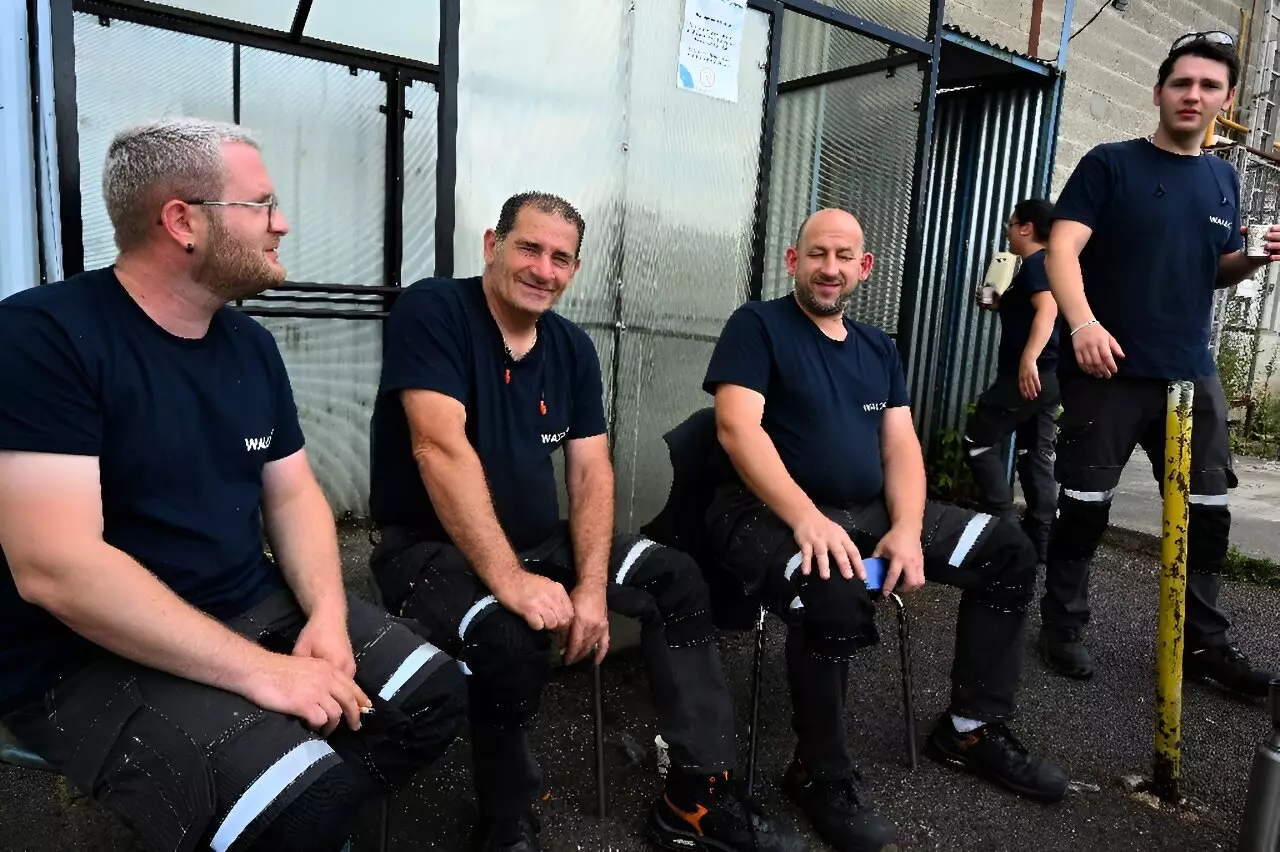As France gears up to phase out new combustion engine cars by 2035, auto workers in the industry are facing a period of uncertainty and concern. While there is some optimism in regions like the north of the country where a “Battery Valley” is emerging, workers at parts suppliers elsewhere are feeling pessimistic about their futures. The industry, which currently employs around 200,000 people in France, is going through a significant transformation that will require adaptation and reskilling from its workforce.
Severine Person, a quality control expert at a facility in Vouziers, expressed concerns about the lack of investment in the transition to electric vehicles when Walor acquired the company. Despite the fact that the production of connecting rods for tractors and trucks is secure, other products like transmission differential housings and engine manifolds are likely to face challenges. The uncertainty around the future of the factory has left many workers feeling resigned to potential closures and job losses.
While some parts of France are experiencing a downturn in the auto industry, the north of the country tells a different story. With the establishment of battery “gigafactories,” such as the one by the Automotive Cells Company (ACC) in Douvrin, new opportunities are emerging. This joint venture involving automakers like Stellantis and Mercedes, as well as TotalEnergies, aims to create a sustainable ecosystem for electric vehicle production.
The battery training center at Stellantis-Douvrin demonstrates a commitment to retraining employees for the shift towards electric vehicles. Staff numbers at the factory have decreased significantly over the years, but the investment in training and upskilling reflects a more positive outlook for the workforce. According to Plateforme automobile (PFA), the transition to EVs is expected to create around 17,000 new jobs in battery manufacturing and recycling facilities by 2026.
Despite the potential for job creation in the electric vehicle sector, concerns linger about the overall impact on employment in the French auto industry. A study conducted by the French metalworking industry indicated that as many as 65,000 jobs could be at risk by 2030 due to the transition to EVs. Economist Bernard Jullien estimates that job losses in the auto parts sector alone could reach 40,000 over the next decade or so.
Ludovic Bouvier from the CGT metalworkers union raises apprehensions about manufacturers potentially offshoring production to cut costs in response to the shift to electric vehicles. This trend could follow a similar pattern to the steel industry, where job losses were significant due to increased pressure on profitability. The decision by some manufacturers, like Stellantis, to produce electric vehicles in locations like Slovakia raises questions about the future of employment in the French auto sector.
As the French auto industry grapples with the transition to electric vehicles, it will need to find innovative solutions to support its workforce. Retraining programs, investment in sustainable manufacturing practices, and a focus on local job creation could help mitigate some of the risks associated with job losses. Additionally, collaboration between industry stakeholders, trade unions, and policymakers will be crucial in ensuring a smooth transition that prioritizes the well-being of workers.
While the road ahead may be challenging for auto workers in France, there is potential for growth and innovation in the electric vehicle sector. By addressing the concerns raised by workers, industry leaders can work towards a more sustainable and inclusive future for the French auto industry. Through proactive measures and a commitment to supporting the workforce through change, France can lead the way in shaping a greener and more resilient automotive sector.


Leave a Reply